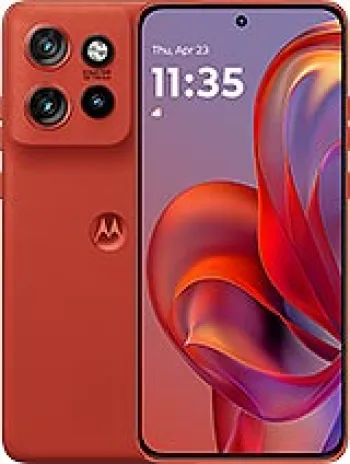
Introduction to Motorola W230
The Motorola W230 represents a piece of mobile history, first announced in January 2008. It was designed for users seeking basic functionality with some media capabilities. As a feature phone, it offered essential communication features with the bonus of an FM radio and MP3 capabilities, serving both productive and leisure needs at a very affordable price point.
Design and Build
The Motorola W230 comes with a compact design that fits comfortably in the hand, reflecting the minimalist aesthetic typical of early 2000s mobile phones. With dimensions of 110 x 45 x 14.7 mm and weighing only 80 grams, it's lightweight and portable. The body is constructed with durable materials, allowing it to withstand the typical wear and tear of everyday use. Available in lustrous silver and dark titanium gray, it catered to users who valued simplicity and practicality over flashy features.
Display Features
The device features a 1.6-inch CSTN display with 65K colors, which was standard for basic phones of its time. With a resolution of 128 x 128 pixels, it offers simple yet sufficient clarity for basic functions like reading text messages and navigating the menu. While it may not compete with today's high-definition screens, the display was perfectly adequate for the device's intended use.
Network and Connectivity
On the network front, the Motorola W230 operates on GSM technology, compatible with GSM 900 and 1800 bands. Although it lacks modern connectivity options like 3G, 4G, or Wi-Fi, it supports GPRS Class 10 for basic internet browsing through its WAP 2.0/xHTML browser. Connectivity options are limited but include a USB 1.1 connection for data transfer and charging purposes. Notably absent are Bluetooth and WLAN, aligning with its role as a no-frills communication device.
Battery Life
A key strength of the Motorola W230 is its battery life, powered by a removable Li-Ion 940 mAh battery (BQ50). It boasts impressive longevity with standby time of up to 450 hours and talk time of up to 9 hours, making it ideal for users needing reliable communication on-the-go without frequent charging.
Memory and Storage
The phone includes a dedicated microSD card slot for expandable storage, which is noteworthy for a feature phone. While it doesn't specify built-in RAM, the capacity to store up to 500 phonebook entries and detailed call records of up to 10 dialed, received, and missed calls showcases its capability to manage basic user data efficiently.
Sound and Entertainment
Entertainment features are modest but functional, with a stereo FM radio offering RDS support. Users can enjoy music through MP3 ringtones or tune into their favorite FM stations. While there is no 3.5mm jack, the loudspeaker facilitates hands-free listening. The phone supports downloadable polyphonic ringtones, providing some degree of customization.
Messaging and Applications
The messaging system of the Motorola W230 supports SMS, EMS, and MMS, allowing users to send text and multimedia messages. Games are pre-installed, offering basic entertainment. Though it lacks support for Java applications, the device can cater to simple communication and gaming needs.
Languages and Usability
To enhance usability across various regions, the phone supports multiple languages, including seven African languages, Hinglish, Bengali, and Tamil. This multilingual capability underscores Motorola's efforts to tailor its devices to diverse markets and enhance accessibility for a global user base.
Conclusion
In retrospect, the Motorola W230 was a practical choice for those seeking a basic mobile phone with extended battery life and essential communication features. Its affordability and simplicity made it a popular choice in emerging markets and for users who prioritized function over form during its time. Though discontinued, it remains a memorable entry in Motorola's lineup, illustrating the evolution of mobile technology and user needs over the years.
Key Features of Motorola W230
- Lightweight design weighing only 80 g
- Compact dimensions: 110 x 45 x 14.7 mm
- GSM 900 / 1800 network compatibility
- Expandable storage with microSD card slot
- Supports SMS, EMS, and MMS messaging
- Long battery life with up to 9 hours of talk time
- Stereo FM radio with RDS for music and news
- Includes downloadable polyphonic and MP3 ringtones
- Available in lustrous silver and dark titanium gray colors
- Affordable price around 30 EUR
Disadvantages of Motorola W230
- No EDGE support for faster mobile internet.
- Limited network technology, only supports GSM.
- No Bluetooth connectivity for easy file transfer.
- No WLAN for wireless internet access.
- No GPS positioning system.
- No camera available.
- No 3.5mm headphone jack.
- Screen is small, with only a 1.6 inches display.
- Low screen resolution of 128 x 128 pixels.
- Limited internal storage capacity.
- Java is not supported.
- Discontinued model, no longer supported by the manufacturer.


View Also
More Phones
All Rights Reserved +14266 Phones © Mobilawy 2025

























